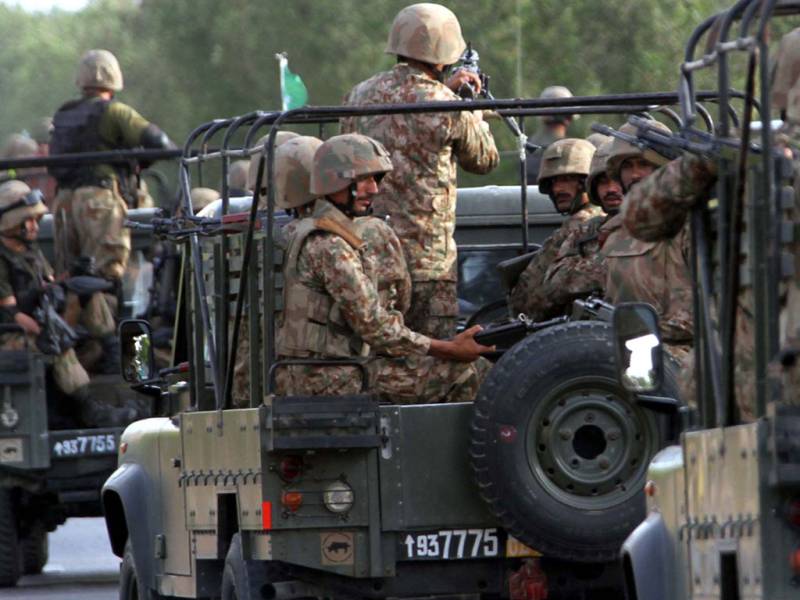
The district administration has imposed Section 144 of the Code of Criminal Procedure in North Waziristan tribal district for 30 days in view of the existing law and order situation in the area, different media outlets reported..
The notification added that entry of non-locals was also prohibited in the district as well as a complete ban on “objectionable speeches”.
Meanwhile, the political leaders have strongly condemned the decision, stating it had made it impossible to run election campaign.
The order issued by Deputy Commissioner Abdul Nasir Khan cited public interest and said the DPO reported that due to the current law and order situation, threats of militancy and other sabotage activities were expected in the district in case of sit-ins, protest rallies, public meetings and public gatherings of five or more persons.
In order to prevent any "untoward situation", it was imperative to impose a complete ban on sit-ins, protest rallies and public gatherings of five or more people, the order stated.
According to the DC, the order will be applicable to the entire district and anyone who fails to comply could be punished under Section 188 (disobedience to order duly promulgated by public servant) of the Pakistan Penal Code.
The order will not apply to congregational prayers in mosques and at funerals.
The imposition of Section 144 in North Waziristan comes in the wake of a series of attacks on security personnel in recent weeks that the military has blamed on terrorist elements.
On June 7, three officers and a soldier of the Pakistan Army were martyred in an improvised explosive device (IED) explosion in the Kharqamar area of the district.
The explosion took place less than a week after a Pakistan Army soldier was martyred in an attack on a security vehicle in North Waziristan. The Inter-Services Public Relations (ISPR) had noted at the time that "terrorist activities in North Waziristan have increased lately."
The military's media wing had linked that attack with the Kharqamar check-post incident in which three people were killed and 15 injured.
The notification added that entry of non-locals was also prohibited in the district as well as a complete ban on “objectionable speeches”.
Meanwhile, the political leaders have strongly condemned the decision, stating it had made it impossible to run election campaign.
The order issued by Deputy Commissioner Abdul Nasir Khan cited public interest and said the DPO reported that due to the current law and order situation, threats of militancy and other sabotage activities were expected in the district in case of sit-ins, protest rallies, public meetings and public gatherings of five or more persons.
In order to prevent any "untoward situation", it was imperative to impose a complete ban on sit-ins, protest rallies and public gatherings of five or more people, the order stated.
According to the DC, the order will be applicable to the entire district and anyone who fails to comply could be punished under Section 188 (disobedience to order duly promulgated by public servant) of the Pakistan Penal Code.
The order will not apply to congregational prayers in mosques and at funerals.
The imposition of Section 144 in North Waziristan comes in the wake of a series of attacks on security personnel in recent weeks that the military has blamed on terrorist elements.
On June 7, three officers and a soldier of the Pakistan Army were martyred in an improvised explosive device (IED) explosion in the Kharqamar area of the district.
The explosion took place less than a week after a Pakistan Army soldier was martyred in an attack on a security vehicle in North Waziristan. The Inter-Services Public Relations (ISPR) had noted at the time that "terrorist activities in North Waziristan have increased lately."
The military's media wing had linked that attack with the Kharqamar check-post incident in which three people were killed and 15 injured.
